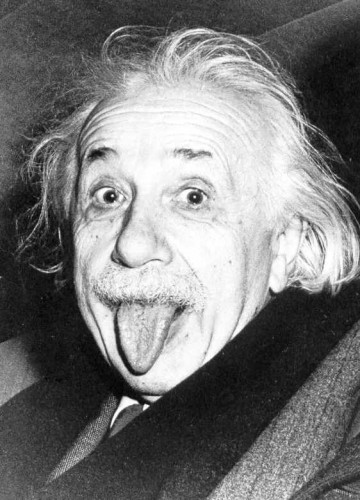I was fascinated by Albert Einstein as a kid. I didn’t really grasp the details of his work, and to this day my grasp of physics is a bit shaky, but I still thought he was awesome. Call it nerd hero-worship.
Learning more about what made him so awesome involves learning more about the man behind the math, and that’s why I am excited that the Hebrew University of Jerusalem is digitizing his correspondence and creating a portal where you can read and browse their archives. It’s certainly cheaper to read it online than hop a flight to Israel to check them out! This is the sort of project that bridges eBooks, libraries and museums; hopefully, it will all go smoothly and the site will be fully operational soon (it has been up and down all day).
Here’s what the website has to say so far:
The digitization project is being launched with 2,000 high-quality images on March 19, 2012. The project will continue throughout 2012.
Over 80,000 records of documents held in original and as copies in the Albert Einstein Archives at the Hebrew University (AEA) and at the Einstein Papers Project at Caltech (EPP) can now be accessed with a user-friendly interface via the internet.
The system offers easy navigation, displaying the search results and additional information such as filters, related topics and similar items.
Some of the digitized documents are accompanied by annotated transcriptions and translations, as edited by the EPP and published in the Collected Papers of Albert Einstein by Princeton University Press (PUP). These documents are searchable as full text.
The Albert Einstein Archives include scientific writings and correspondence, non-scientific writings and correspondence, family letter and travel diaries.
Einstein Archives Online presents images Einstein’s handwritten manuscripts; it includes correspondence, typewritten manuscripts, photos, audio material, etc.
I hope this is a trend that will continue with more famous and influential people’s correspondence and archives. Being able to share that kind of first-party information in education is invaluable; even if you’re not a teacher or student doesn’t mean you have to stop learning!
Via The Verge

